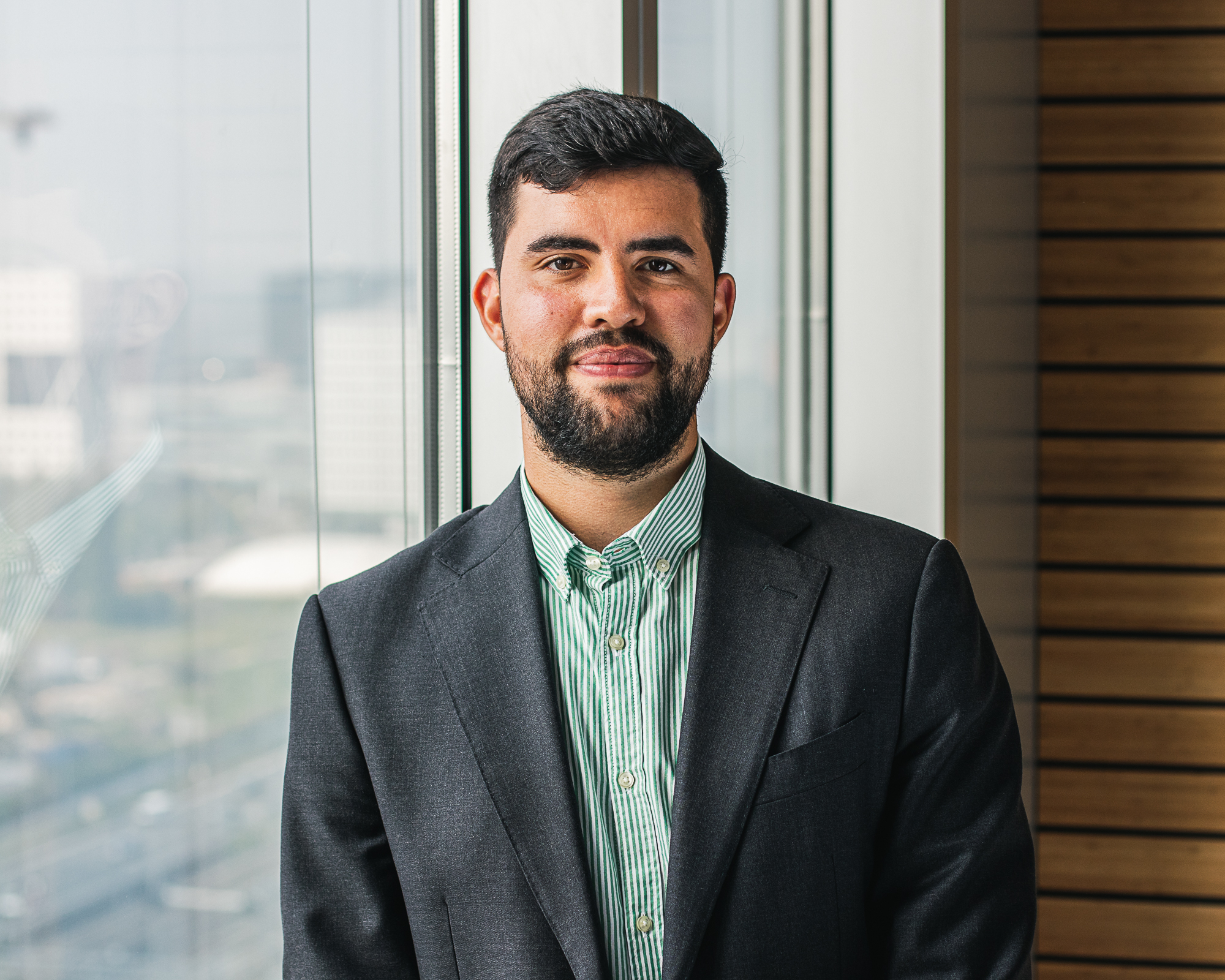1. Please tell us a bit about yourself, both at work and leisure.
I’m a Senior Analyst in the Ventures & Acquisitions team of RGAX, based out of Amsterdam. RGAX is the transformation engine of RGA, promoting and accelerating innovation within the Life and Health insurance sectors by means of organic and inorganic initiatives. RGA is one of the largest global life and health reinsurance companies.
I joined the organization in 2018 to support the EMEA region on deal sourcing activities, executing partnerships and managing our portfolio of 30+ startups globally.
Prior to joining RGAX I worked in Corporate Banking at ABN AMRO and in Port Logistics at the Port of Rotterdam. I hold a Master Degree in Business Management from Cass Business School in London and a Corporate Communication’s Master from the University of Amsterdam.
Personally, I enjoy travelling and experiencing new cultures. I’m also a sports fan and play soccer and squash. In addition, I volunteer for a foundation that promotes dialogue and understanding between the Arab World and Europe through education.
2.What are your focus areas, overall and within the (B2B) FinTech / InsurTech space?
As an investor, RGAX operates similar to a Corporate Venture Capital Fund with a strategic investment approach. Therefore, the investments and partnerships that we enter into are aimed at solving pain points and pursuing growth of our core business and that of our clients within the Life and Health (Re)insurance sectors.
3.Any recent deals that you would like to share with us, and why you invested or partnered?
We invest and partner to accelerate industry innovation and to help solve specific client challenges. On the global network page of our website (www.rgax.com), we showcase many of our current portfolio companies as well as those we actively partner with to bring transformative solutions to the life and health (Re)insurance industry.
4.What does it take to get to Series A today?
Prior to reaching Series A funding, startups should be creating, testing and validating a product or service that solves a real-life problem. To get to Series A (and beyond) companies will build upon that foundation and have a ‘market-ready’ product that allows them to differentiate themselves from their competitors, deliver on their strategy and demonstrate a path towards scaling revenue. Focusing on delivering excellence for the core business first will then allow you to provide additional customer value, focus on your internal organization and provide a strong base to develop partnership and attract investments. Being able to show traction with your target users is essential.
In addition, people and company culture are key to the success of businesses and to get to Series A, a startup needs a strong and balanced team that can execute, convey their message in a clear and simple manner and are open to working with others. In fact, the startup’s core team is usually the first aspect we look at when considering a startup partnership.
5.Which are the trends to watch out for in Europe/ EMEA in the next 6-18 months?
I’m looking forward to keeping an eye out for increased vertical integration by Insurtechs as the industry matures. In the coming 6-18 months, I expect startups that are currently operating as facilitators and intermediaries to further develop end-to-end solutions. We have witnessed this trend take place in the larger FinTech space and have already seen several Brokers and Managing General Agents pivot to becoming full-stack Insurance carriers. I expect this to be something to track in EMEA in the near future.
Other trends worth mentioning specific to Life and Health, are startups exploring new distribution channels through embedded insurance as well as a growing focus on Environmental, Social, and Governance (ESG) efforts by startups.
6.What should startups expect or plan for in the coming months?
Over the last year we have seen multiple record quarters with Insurtech funding reaching an all-time high, both in terms of volume of deals as well as total capital raised. In addition to the later stage ‘mega-rounds’ raised, we are seeing an increase in early stage investments and more people choosing to work in or form new startups, indicating that this trend isn’t slowing down any time soon.
Startups can expect an increasing amount of capital available to be deployed in the Insurtech space, with global growth in the number of venture funds and dry powder available for investment. Despite funding being more easily available, it is extremely important that a startup chooses a partner that fits them, not only from a financial perspective but from a strategic and cultural perspective as well.
Finally, given ESG developments and public interest, we should expect new initiatives that are further aligned with these principles.
7.Your favorite place for a coffee and/ or a drink?
One of my favorite places for a coffee is a café called Kaafi in the city center of The Hague. Primarily because they have great coffee, nice atmosphere and an interesting and seasonal brunch menu – highly recommend if you are ever in town. Reach out to me – would be happy to meet you there and tell you more about what we are doing!

